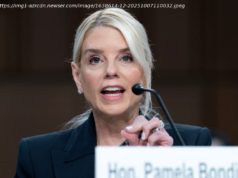Coordinating with Michael Cohen, a tabloid giant turned its tip line into a trip wire for negative stories that could hurt the Trump campaign, prosecutors said.
The federal campaign finance and tax evasion case that is embroiling the White House began in the unlikeliest of places: the world of supermarket tabloids.
It is populated by porn stars and Playboy models, shadowy “story brokers” and the ultra rich and powerful, who can buy back their secrets on an underground exchange run by gossip scribes who set the rules, the prices and, frequently, the reputational toll.
That world has now come to life on the stark pages of federal court documents that detail violations of campaign finance and tax laws, implicating President Trump and reprising Watergate-era talk of “high crimes and misdemeanors” and possible impeachment.
In laying out the charges to which Michael D. Cohen, Mr. Trump’s longtime lawyer, pleaded guilty on Tuesday, the documents filed in New York also entangle several unidentified people in Mr. Trump’s business and from his campaign.
The anatomy of the crime the court papers describe — stemming from hush money payments to two women who claimed they had sexual encounters with Mr. Trump — has a reality-television twist that has come to typify the Trump presidency. One of the women, the pornographic film star Stephanie Clifford, known as Stormy Daniels, went public with her story earlier this year in a media blitz, and she was represented by a brash lawyer who says he now is considering running for president.
“You have to go back to Watergate-era scandals to find similarly colorful and outrageous events,” said Daniel A. Petalas, a former head of enforcement at the Federal Election Commission and a former Justice Department public corruption prosecutor. “When political figures are engaged in conduct that might be tawdry or salacious, it’s not unusual that the other participants have colorful histories and backgrounds themselves.”
Like so many political scandals before it, this one began with a typical worry for some candidates: that their history of extramarital affairs and other sexual behavior could undermine a bid for office.
The trouble for Mr. Trump, some of which was first disclosed just before the 2016 election, began a decade earlier, shortly after the birth of his son with Melania Trump. Mr. Trump allegedly began affairs with Ms. Clifford, whom he met at a celebrity golf tournament; and Karen McDougal, then a Playboy model he met at the Playboy Mansion while filming an episode of his NBC hit “The Apprentice.”
Mr. Trump had an ally in the nation’s biggest tabloid news publisher, American Media Inc., which controls nearly every gossip magazine on checkout counter racks throughout the country, and is a magnet for people with embarrassing tales to sell about the rich and the famous.
Its flagship, The National Enquirer, proved in 2008 that it could be as threatening to a politician as to a Hollywood star, when it uncovered an affair that John Edwards, the Democratic presidential candidate, had with a campaign worker that resulted in the birth of a child. Political supporters of Mr. Edwards helped finance the cover-up, leading to an unsuccessful yet groundbreaking campaign finance case that created a template for the charges against Mr. Cohen.
The court documents filed Tuesday in connection with Mr. Cohen’s guilty plea provided a far more detailed account than previously known about the payments made to suppress women’s stories about Mr. Trump that could have threatened his election prospects. The filings revealed the involvement of executives at The Trump Organization, who routed reimbursements to Mr. Cohen through a Trump trust using “sham invoices.”
For the first time, prosecutors said that the tabloid publisher American Media Inc. had been involved in deals to buy the silence of both Ms. Clifford and Ms. McDougal. And as early as August 2015, prosecutors revealed, Mr. Cohen communicated with the chairman of American Media, David J. Pecker, who agreed to turn the organization’s tip line into a trip wire that could detect potential trouble for Mr. Trump. Mr. Pecker agreed to “help deal with negative stories,” about Mr. Trump’s “relationships with women by, among other things, assisting the campaign in identifying such stories so they could be purchased and their publication avoided.”
Mr. Pecker made that promise, prosecutors said, “in coordination with” Mr. Cohen, “and one or more members of the campaign.”
Prosecutors and Mr. Cohen said that he undertook his work with A. M. I. at Mr. Trump’s direction — an assertion the president denied, telling Fox News on Wednesday that he learned of the payments only later. In the campaign’s early days in 2015, Mr. Trump was operating a bare-bones staff that included his communications director, Hope Hicks; his campaign manager, Corey Lewandowski; and, until that August, his longtime consigliere, Roger Stone.
Prosecutors identified June 2016 — around the time Mr. Trump effectively clinched the Republican nomination — as the beginning of the plot to pay off Ms. McDougal. A fitness specialist and model by then, Ms. McDougal had been named Playboy’s Playmate of the Year for 1998 but came from wholesome roots as a preschool teacher. Even in recent interviews, she has maintained that she admires Mr. Trump, saying she broke off their relationship in 2007 out of her own sense of guilt about being involved in an extramarital affair.
She has said that she decided to sell her story in 2016 when another former Playboy model hinted at it on Twitter, causing her to worry that it would become public whether she liked it or not. After a friend convinced her that she might as well make money from it, she decided to approach the tabloids and hired a Los Angeles lawyer, Keith M. Davidson, to help her do it.
Mr. Davidson’s client list included professional athletes like Manny Pacquiao and Jalen Rose, but his work also brought him into the orbit of regular subjects of tabloid news such as the wrestler Hulk Hogan and the “Austin Powers” actor Verne Troyer. He had worked with A. M. I. and other gossip publishers, both in selling information and in seeking to block stories that might damage clients’ reputations.
According to prosecutors, when Ms. McDougal and Mr. Davidson approached American Media, Mr. Pecker, along with his top editorial executive, Dylan Howard, immediately informed Mr. Cohen. More important, the prosecutors allege, Mr. Cohen then urged A. M. I. to buy her story in order to suppress it, “so as to prevent it from influencing the election.”
The First Amendment gives media companies wide latitude to communicate with candidates and, several campaign finance law experts have said, even allows them to coordinate coverage with campaigns — which makes sense for a country that had a very partisan press corps at its founding.
“A media entity can talk with a campaign about coverage as part of its media function,” said Trevor Potter, a founder of the Campaign Legal Center who helped write part of the campaign finance law.
But a media company makes an illegal corporate contribution if it acts outside its “legitimate press function” in coordinating with a campaign to spend money to influence an election. Such activity “is not like the action of a media company deciding what to cover and exercising editorial judgment,” Potter said.
And that’s where, prosecutors allege, the relationship between Mr. Cohen, Mr. Trump and potentially others in his campaign took an illegal turn.
Speaking in court on Tuesday, Mr. Cohen said he arranged the payment “in coordination with, and at the direction of, a candidate for federal office.” Prosecutors said that A. M. I.’s $150,000 agreement with Ms. McDougal came after Mr. Cohen promised the company that it would be reimbursed. Prosecutors report that Mr. Cohen effectively moved to do that several weeks later, setting up a shell company to buy the rights to Ms. McDougal’s story about Mr. Trump from A. M. I.
The deal was coming together around the time that Mr. Cohen taped a conversation with Mr. Trump in which they appeared to come to a realization: As loyal as Mr. Pecker was, there was no guarantee he would always be in place to protect Mr. Trump’s secrets. As Mr. Trump said on the tape, which Mr. Cohen’s lawyer released last month, “Maybe he gets hit by a truck.” At the last minute, according to prosecutors, A. M. I. backed out of the deal and instructed Mr. Cohen to destroy related paperwork. He did not. It is now in the possession of federal prosecutors.
Mr. Cohen and Mr. Pecker shared a commitment to protecting Mr. Trump. The two men had already had a trial run at that in July 2015. When a man approached Mr. Cohen to say he had a potentially compromising photograph of Mr. Trump signing a woman’s bare breast, Mr. Cohen arranged to connect the man with A. M. I. to discuss a deal, The New York Times previously reported.






